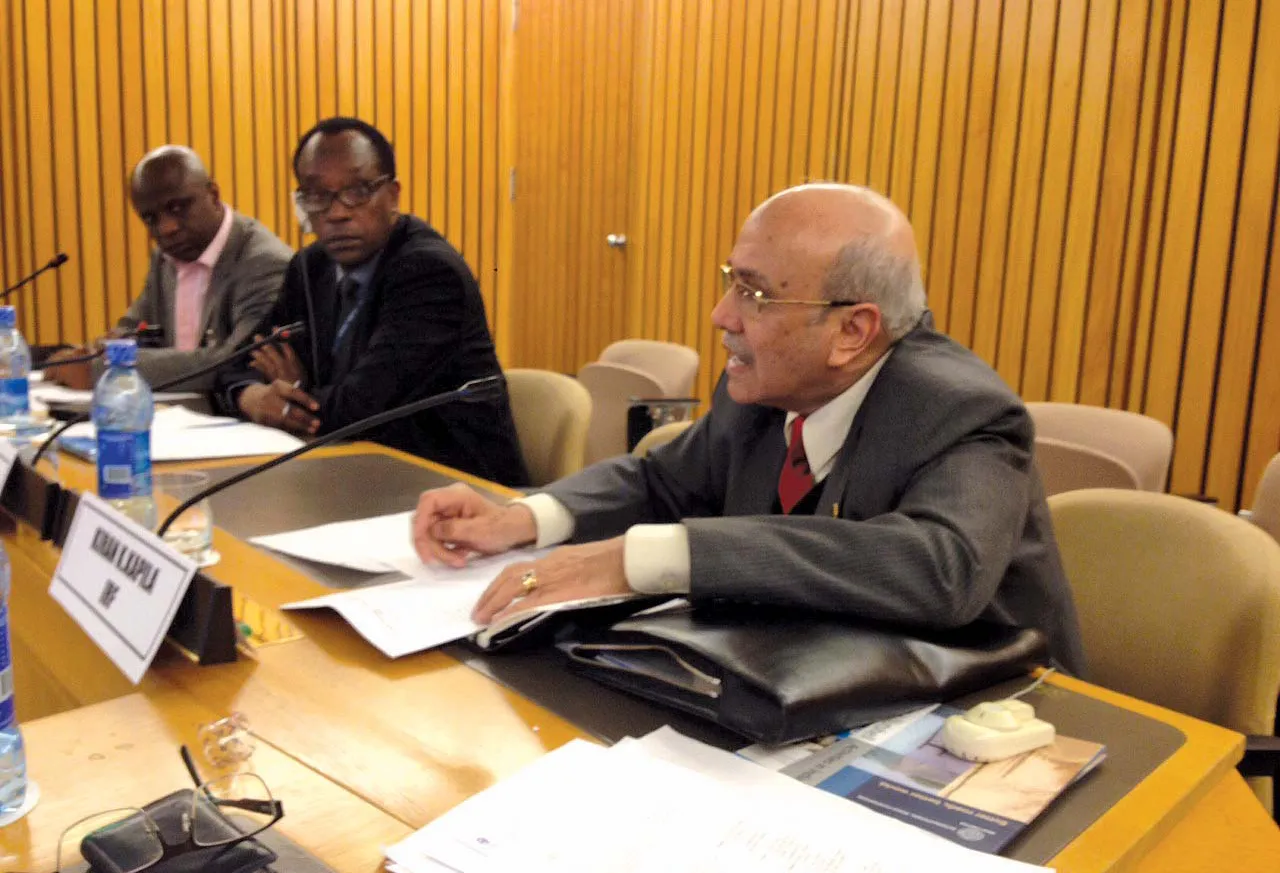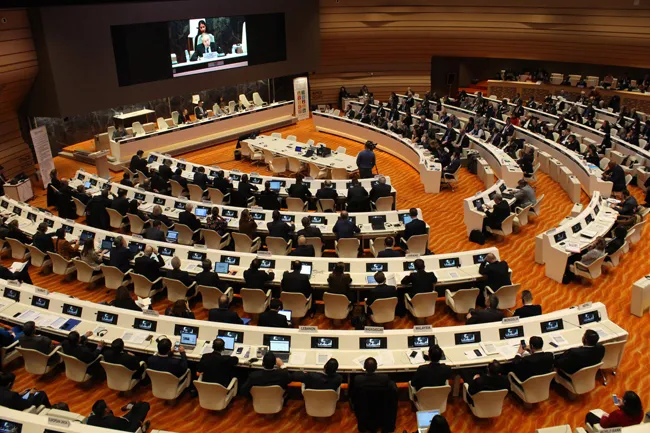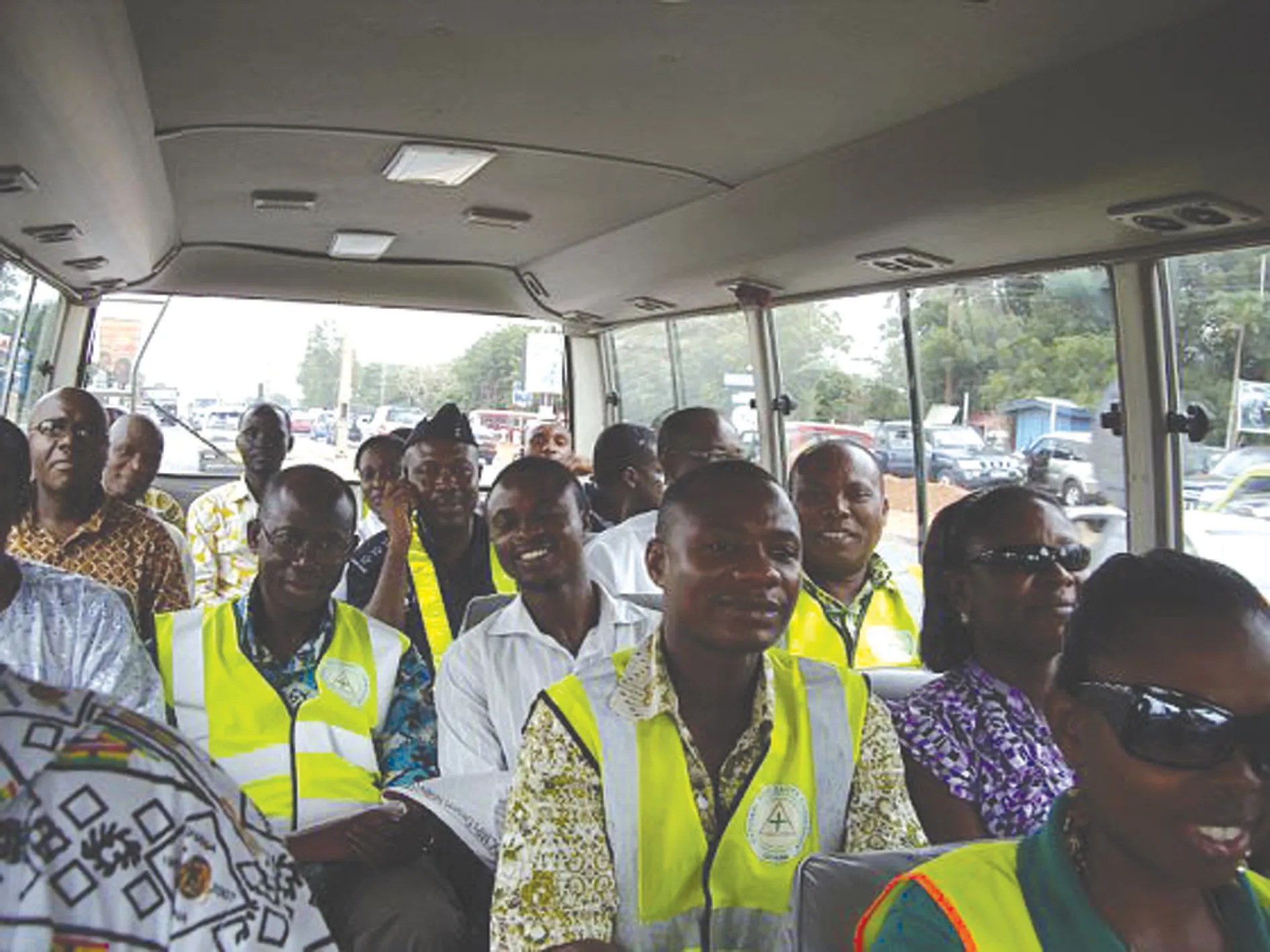IRF providing input for the revision of the African Decade of Action Plan
As part of the preparations for the second Global High Level Conference on Road Safety to be held in Brasilia later this year, UNECA, in collaboration with the African Union Commission (AUC), African Transport Policy Programme (SSATP), the Global Road Safety Facility of the World Bank, the International Road Federation (IRF-Geneva) and other partners, organised the Third African Road Safety Conference on 9 and 10 July 2015 at the U
August 18, 2015
Read time: 2 mins

IRF providing input for the revision of the African Decade of Action Plan
As part of the preparations for the second Global High Level Conference on Road Safety to be held in Brasilia later this year, UNECA, in collaboration with the African Union Commission (AUC), African Transport Policy Programme (SSATP), the Global Road Safety Facility of the World Bank, the International Road Federation (1201 IRF Geneva) and other partners, organised the Third African Road Safety Conference on 9 and 10 July 2015 at the United Nation Conference Centre in Addis Ababa.
The objective of this conference was to review the progress made towards the objectives of the African Road Safety Action Plan (2011-2020). As part of this review, the conference covered the progress made by member states have in implementing the African Road Safety Action Plan; and identifying the challenges to the implementation of the Action Plan.
The conference was kicked off with address by Tekletsadik Reba, State Minister of Transport for Ethiopia, Jean Todt, and the UN Special Envoy for Road Safety, and Kiran Kapila, IRF Geneva chairman. Todt highlighted the need to collect more and better data in his address. Kapila, IRF Geneva chairman, gave a keynote address in which he emphasised the need to improve road safety not just on new roads, but also on existing roads. According to UNECA, Ghana, Nigeria and South Africa are the “top three performers among 23 countries” in terms of carrying out the activities of the African Road Safety Action Plan. While progress has and is being made, the performance of countries in implementing the Plan and improving road safety has been mixed. Meanwhile, around 40% of the countries are implementing road safety management activities. But more than 30% of the countries have not even take steps to harmonise data formats and use international standards for reporting road safety data.
One of the key conclusions of the conference was that the availability and quality of data needed to be improved. Better, and more data, the conference concluded would greatly help in designing evidence based interventions and improving road safety.
As part of the preparations for the second Global High Level Conference on Road Safety to be held in Brasilia later this year, UNECA, in collaboration with the African Union Commission (AUC), African Transport Policy Programme (SSATP), the Global Road Safety Facility of the World Bank, the International Road Federation (
The objective of this conference was to review the progress made towards the objectives of the African Road Safety Action Plan (2011-2020). As part of this review, the conference covered the progress made by member states have in implementing the African Road Safety Action Plan; and identifying the challenges to the implementation of the Action Plan.
The conference was kicked off with address by Tekletsadik Reba, State Minister of Transport for Ethiopia, Jean Todt, and the UN Special Envoy for Road Safety, and Kiran Kapila, IRF Geneva chairman. Todt highlighted the need to collect more and better data in his address. Kapila, IRF Geneva chairman, gave a keynote address in which he emphasised the need to improve road safety not just on new roads, but also on existing roads. According to UNECA, Ghana, Nigeria and South Africa are the “top three performers among 23 countries” in terms of carrying out the activities of the African Road Safety Action Plan. While progress has and is being made, the performance of countries in implementing the Plan and improving road safety has been mixed. Meanwhile, around 40% of the countries are implementing road safety management activities. But more than 30% of the countries have not even take steps to harmonise data formats and use international standards for reporting road safety data.
One of the key conclusions of the conference was that the availability and quality of data needed to be improved. Better, and more data, the conference concluded would greatly help in designing evidence based interventions and improving road safety.









